-
 Bitcoin
Bitcoin $113900
-1.39% -
 Ethereum
Ethereum $3517
-4.15% -
 XRP
XRP $3.009
1.59% -
 Tether USDt
Tether USDt $0.9997
-0.04% -
 BNB
BNB $766.8
-1.41% -
 Solana
Solana $164.6
-2.38% -
 USDC
USDC $0.9998
-0.02% -
 TRON
TRON $0.3277
0.65% -
 Dogecoin
Dogecoin $0.2023
-1.67% -
 Cardano
Cardano $0.7246
0.05% -
 Hyperliquid
Hyperliquid $38.27
-4.77% -
 Sui
Sui $3.528
-0.52% -
 Stellar
Stellar $0.3890
-0.73% -
 Chainlink
Chainlink $16.16
-2.69% -
 Bitcoin Cash
Bitcoin Cash $539.9
-4.38% -
 Hedera
Hedera $0.2425
-2.00% -
 Avalanche
Avalanche $21.71
-0.97% -
 Toncoin
Toncoin $3.662
5.73% -
 Ethena USDe
Ethena USDe $1.000
-0.02% -
 UNUS SED LEO
UNUS SED LEO $8.964
0.35% -
 Litecoin
Litecoin $107.7
2.33% -
 Shiba Inu
Shiba Inu $0.00001223
-0.40% -
 Polkadot
Polkadot $3.617
-0.97% -
 Uniswap
Uniswap $9.052
-2.49% -
 Monero
Monero $295.1
-3.79% -
 Dai
Dai $0.9999
0.00% -
 Bitget Token
Bitget Token $4.315
-1.85% -
 Pepe
Pepe $0.00001060
0.11% -
 Cronos
Cronos $0.1342
-2.72% -
 Aave
Aave $256.0
-0.87%
How to verify the validity of Bitcoin wallet addresses?
Verifying Bitcoin addresses requires checking checksums, exploring transaction history on blockchain explorers, assessing the address source's reputation, and recognizing red flags like typos or unusual formats; no single method guarantees validity, but a multi-pronged approach minimizes risk.
Mar 10, 2025 at 11:26 pm
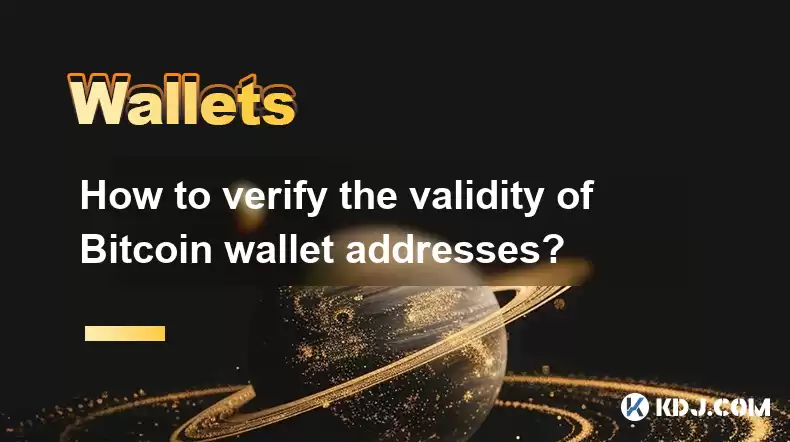
Key Points:
- Understanding Bitcoin address formats and their variations.
- Utilizing online verification tools and their limitations.
- Examining transaction history on blockchain explorers.
- Assessing the reputation and history of the associated wallet.
- Recognizing potential red flags indicating invalid or compromised addresses.
How to Verify the Validity of Bitcoin Wallet Addresses?
Verifying the validity of a Bitcoin wallet address is crucial to prevent scams and ensure the safe transfer of funds. A seemingly valid address might be fraudulent, leading to irreversible loss of your cryptocurrency. Therefore, a multi-pronged approach is recommended. This involves more than just a visual inspection; it requires delving into the underlying technology and reputation.
Bitcoin addresses, unlike bank account numbers, don't inherently reveal ownership. They are essentially cryptographic hash functions, designed for one-way encryption. This means you can't determine the owner from the address itself. However, we can verify its structural integrity and check its activity on the blockchain. Several address formats exist, including legacy (P2PKH), SegWit (bech32), and nested SegWit (P2SH-SegWit). Understanding these formats is the first step.
One method involves using online verification tools. Numerous websites offer address validation services. These tools typically check the address's checksum – a crucial part of the address ensuring its integrity. A failed checksum indicates an invalid address. However, relying solely on these tools is risky. These tools only check the address format; they don't guarantee the address is associated with a legitimate user or hasn't been compromised.
A more robust method is to examine the transaction history of the Bitcoin address. Blockchain explorers, like Blockchain.com or BlockCypher, allow you to input any Bitcoin address and view its entire transaction history. This reveals if the address has received or sent Bitcoin in the past. An address with a long and consistent history suggests legitimacy, while a completely new address warrants greater caution. However, even this isn't foolproof; a newly created address can still be legitimate.
Beyond the technical aspects, consider the source of the address. Did you receive it from a trusted exchange, a known merchant, or a seemingly random source? A suspicious origin raises red flags. If the address comes from an unsolicited email, social media message, or a website with a questionable reputation, treat it with extreme skepticism. Never send Bitcoin to an address you don't completely trust.
Several red flags can indicate an invalid or compromised Bitcoin address. Typos are a common error. Even a single incorrect character renders the address unusable. Addresses with unusual characters or an unexpected format should also raise concerns. Similarly, addresses associated with known scams or phishing attempts should be avoided at all costs.
Using multiple verification methods is essential. Combining checksum verification with blockchain exploration and source assessment offers a more comprehensive approach. Remember, precaution is paramount. Never rush into sending Bitcoin; take your time to verify the address thoroughly. If you're unsure, it's always better to err on the side of caution.
The process involves careful examination, not just a simple "yes" or "no" answer. There's no single definitive method to guarantee validity, but a combination of checks drastically reduces the risk. Always remember that the responsibility for protecting your Bitcoin rests solely with you.
- What are the different types of Bitcoin addresses? Bitcoin addresses come in different formats, primarily legacy (P2PKH), SegWit (bech32), and nested SegWit (P2SH-SegWit). Each format has its advantages and disadvantages concerning transaction fees and security.
- How reliable are online Bitcoin address verification tools? Online tools are helpful for basic checksum validation, but they don't guarantee the address's legitimacy or safety. They only confirm the correct address format.
- Can I verify a Bitcoin address without using online tools? While online tools are convenient, you can verify an address by examining its transaction history on a blockchain explorer. This provides more comprehensive information.
- What does the transaction history of a Bitcoin address reveal? The transaction history shows all past Bitcoin transactions associated with the address, indicating its activity and potentially its age and legitimacy.
- What are some red flags to watch out for when verifying a Bitcoin address? Red flags include typos, unusual characters, unexpected formats, and association with known scams or phishing attempts. Always verify the source of the address.
- Is there a 100% foolproof method to verify a Bitcoin address? No, there isn't a foolproof method. However, combining several verification techniques significantly reduces the risk of sending Bitcoin to an invalid or compromised address. The ultimate safeguard is your own due diligence.
Disclaimer:info@kdj.com
The information provided is not trading advice. kdj.com does not assume any responsibility for any investments made based on the information provided in this article. Cryptocurrencies are highly volatile and it is highly recommended that you invest with caution after thorough research!
If you believe that the content used on this website infringes your copyright, please contact us immediately (info@kdj.com) and we will delete it promptly.
- Bitcoin Strategy: Saylor's Not Hoarding, He's Building an Empire
- 2025-08-02 22:30:12
- Bitcoin Bloodbath: Macro Pressures and Liquidations Unleash Crypto Chaos
- 2025-08-02 22:30:12
- Worldcoin, Identity, WLD Price: Decoding the NYC Crypto Buzz
- 2025-08-02 21:10:12
- Shiba Inu: Utility and Community Strength Drive Crypto's Evolution
- 2025-08-02 21:50:12
- Crypto Donations, Trump PAC, and Bitcoin: A New York Minute on Political Coin
- 2025-08-02 20:30:12
- Crypto Market Under Pressure: Bearish Momentum and Rising Volatility Take Hold
- 2025-08-02 20:30:12
Related knowledge

What is a watch-only wallet in Trust Wallet?
Aug 02,2025 at 03:36am
Understanding the Concept of a Watch-Only WalletA watch-only wallet in Trust Wallet allows users to monitor a cryptocurrency address without having ac...

How to switch between networks in Trust Wallet?
Aug 02,2025 at 12:36pm
Understanding Network Switching in Trust WalletSwitching between networks in Trust Wallet allows users to manage assets across different blockchains s...
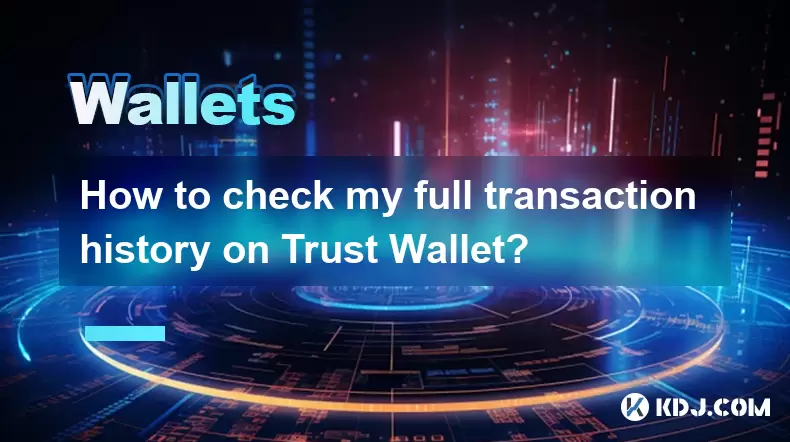
How to check my full transaction history on Trust Wallet?
Aug 02,2025 at 09:24am
Understanding Transaction History in Trust WalletTrust Wallet is a widely used non-custodial cryptocurrency wallet that supports a broad range of bloc...
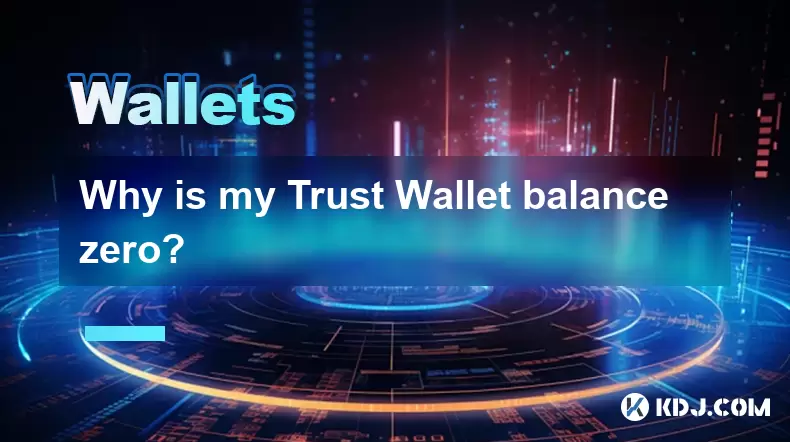
Why is my Trust Wallet balance zero?
Aug 02,2025 at 03:49am
Understanding Trust Wallet Balance Display IssuesIf you're seeing a zero balance in your Trust Wallet despite knowing you've previously received or se...
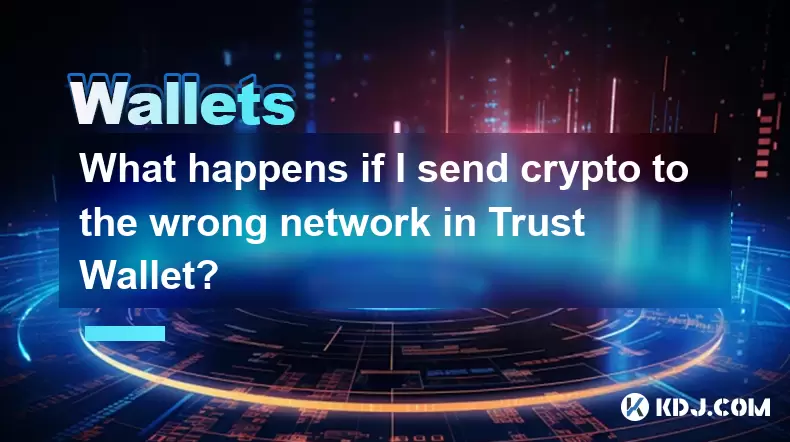
What happens if I send crypto to the wrong network in Trust Wallet?
Aug 02,2025 at 07:22pm
Understanding Network Compatibility in Trust WalletWhen using Trust Wallet, it's essential to understand that different cryptocurrencies operate on di...
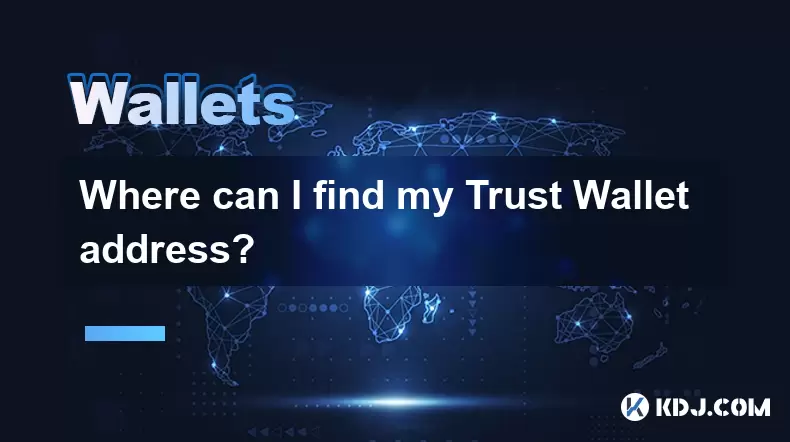
Where can I find my Trust Wallet address?
Aug 02,2025 at 06:07pm
Understanding Your Trust Wallet AddressYour Trust Wallet address is a unique identifier that allows others to send you cryptocurrency. It is a string ...

What is a watch-only wallet in Trust Wallet?
Aug 02,2025 at 03:36am
Understanding the Concept of a Watch-Only WalletA watch-only wallet in Trust Wallet allows users to monitor a cryptocurrency address without having ac...

How to switch between networks in Trust Wallet?
Aug 02,2025 at 12:36pm
Understanding Network Switching in Trust WalletSwitching between networks in Trust Wallet allows users to manage assets across different blockchains s...

How to check my full transaction history on Trust Wallet?
Aug 02,2025 at 09:24am
Understanding Transaction History in Trust WalletTrust Wallet is a widely used non-custodial cryptocurrency wallet that supports a broad range of bloc...

Why is my Trust Wallet balance zero?
Aug 02,2025 at 03:49am
Understanding Trust Wallet Balance Display IssuesIf you're seeing a zero balance in your Trust Wallet despite knowing you've previously received or se...

What happens if I send crypto to the wrong network in Trust Wallet?
Aug 02,2025 at 07:22pm
Understanding Network Compatibility in Trust WalletWhen using Trust Wallet, it's essential to understand that different cryptocurrencies operate on di...

Where can I find my Trust Wallet address?
Aug 02,2025 at 06:07pm
Understanding Your Trust Wallet AddressYour Trust Wallet address is a unique identifier that allows others to send you cryptocurrency. It is a string ...
See all articles

























































































